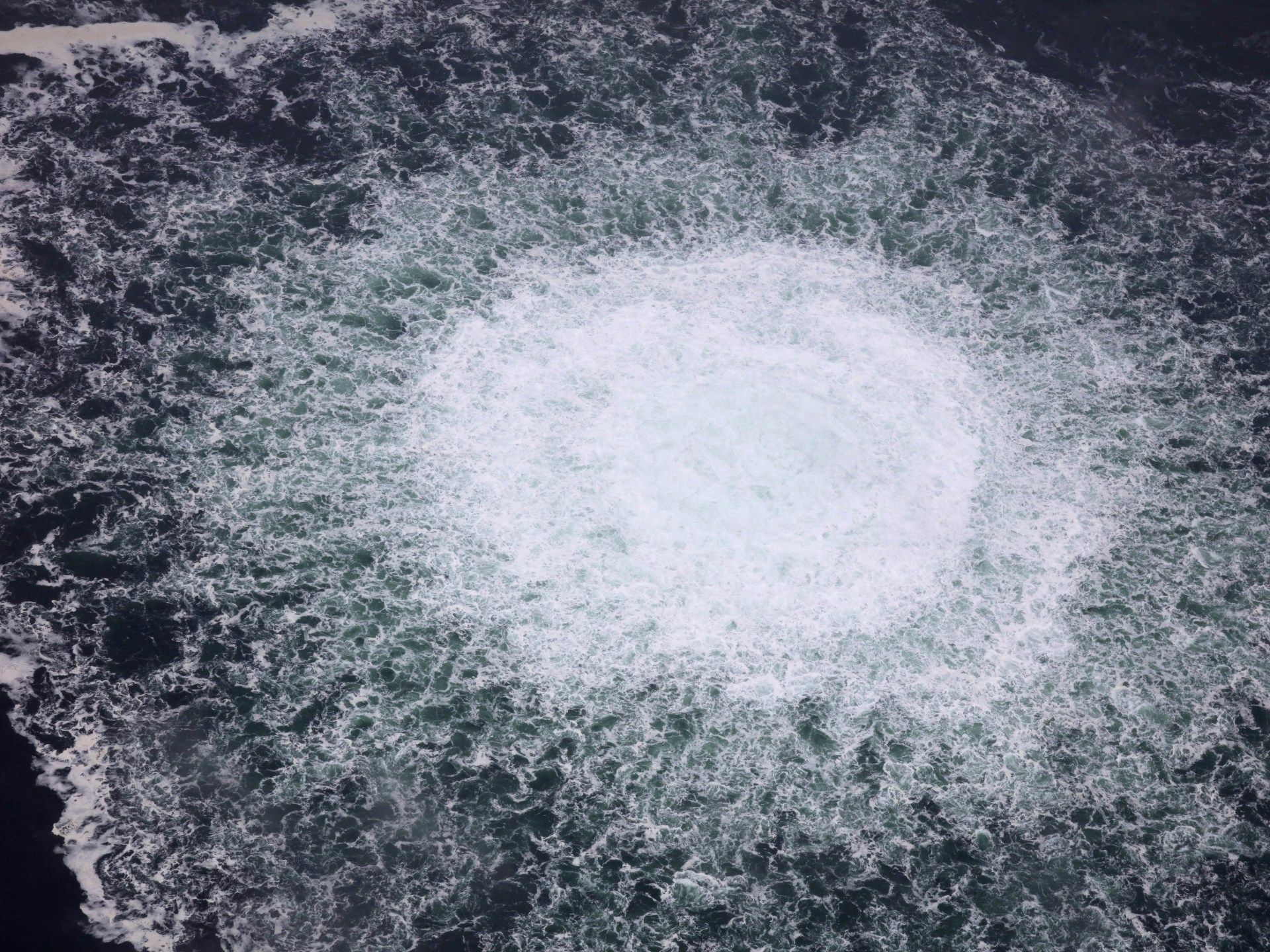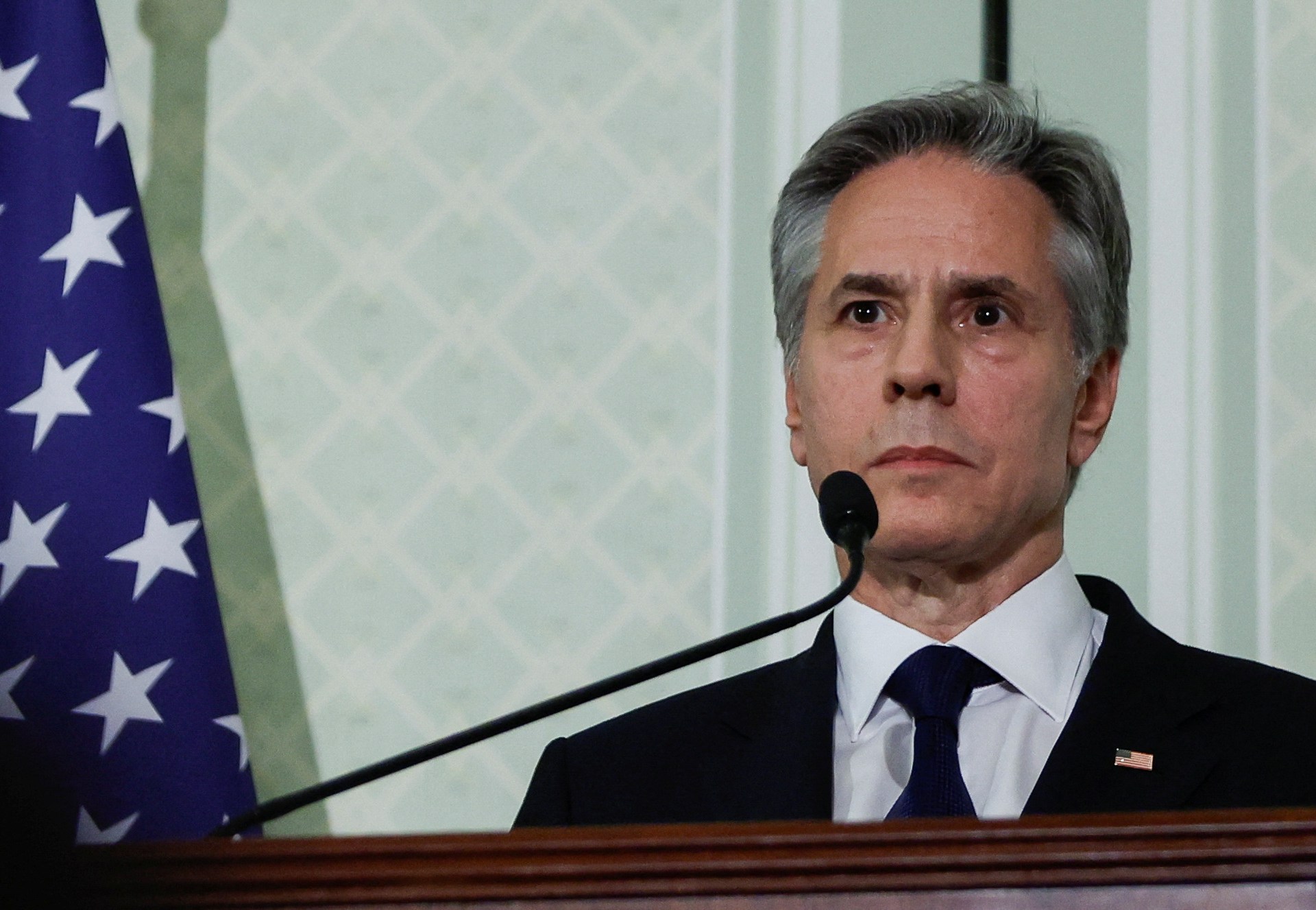Police consider deliberate sabotage responsible for the 2022 explosions on the Nord Stream 1 and 2 gas pipelines, but it is not sufficient reason to initiate a criminal case.
Denmark says it has closed its investigation into mysterious explosions that in 2022 damaged two gas pipelines built to transport Russian gas to Europe, with authorities concluding they were an act of sabotage but there were insufficient grounds for a criminal case.
The explosions on the multibillion-dollar Nord Stream 1 and 2 oil pipelines contributed to tensions that followed Russia's invasion of Ukraine two years ago. Russia and Ukraine's Western allies quickly traded blame for the incident in the Baltic Sea, which also led to releases of large amounts of environmentally damaging methane into the air.
Danish police said in a statement on Monday that their investigation – one of three into the explosions – had found that “there was deliberate sabotage” of the pipelines, but “the assessment is that there are insufficient grounds to initiate a criminal case.” .
Responding to the announcement, Kremlin spokesman Dmitry Peskov said the decision was “almost absurd” and accused Denmark of closing the case to cover up its allies.
“On the one hand, they acknowledge that deliberate sabotage occurred, but on the other they are not moving forward,” Peskov told reporters, adding that Denmark had rejected requests for information about its investigation.
Denmark's announcement came after Sweden also said earlier this month that it was closing its investigation, noting that the case was not under its jurisdiction. Swedish officials also said they handed over to Germany “material that can be used as evidence in the German investigation.”
Germany's federal prosecutor's office said Monday that its investigation continues and that it will not release any further information.
Underwater explosions shortly after midnight on September 26, 2022 ruptured the Nord Stream 1 gas pipeline, which was the main natural gas supply route from Russia to Germany until Russia cut off supplies at the end of the previous month.
They also damaged the Nord Stream 2 pipeline, which never entered service because Germany suspended its certification process shortly before the invasion of Ukraine.
The explosions took place about 80 meters (260 feet) underwater on the ocean floor in the Baltic Sea. Seismic measurements indicated that they occurred shortly before the discovery of unexplained leaks.
blame game
Months after the detonations, there is no accepted explanation. As investigations continue, a series of unconfirmed reports have accused Russia, the United States and Ukraine of sabotage.
The pipelines have long been the target of criticism from the United States and some of its allies, who warned that they posed a risk to Europe's energy security by increasing dependence on Russian gas.
Russia accused the United States of organizing the explosions, which it described as a terrorist attack. The United States has denied involvement.
In March 2023, German media reported that a pro-Ukrainian group was involved in the explosions using a ship that departed from the German port of Rostock. Ukraine rejected suggestions that it might have ordered the attack and German officials expressed caution about the accusation.
Swedish prosecutors previously hinted that the identity of the perpetrator is likely to remain unclear.
Beyond its geopolitical impact, the Nord Stream pipeline leaks were a massive environmental disaster that affected local wildlife and huge volumes of methane were discharged into the Baltic Sea in what observers believe could be the largest ever release of methane. due to human activity.












